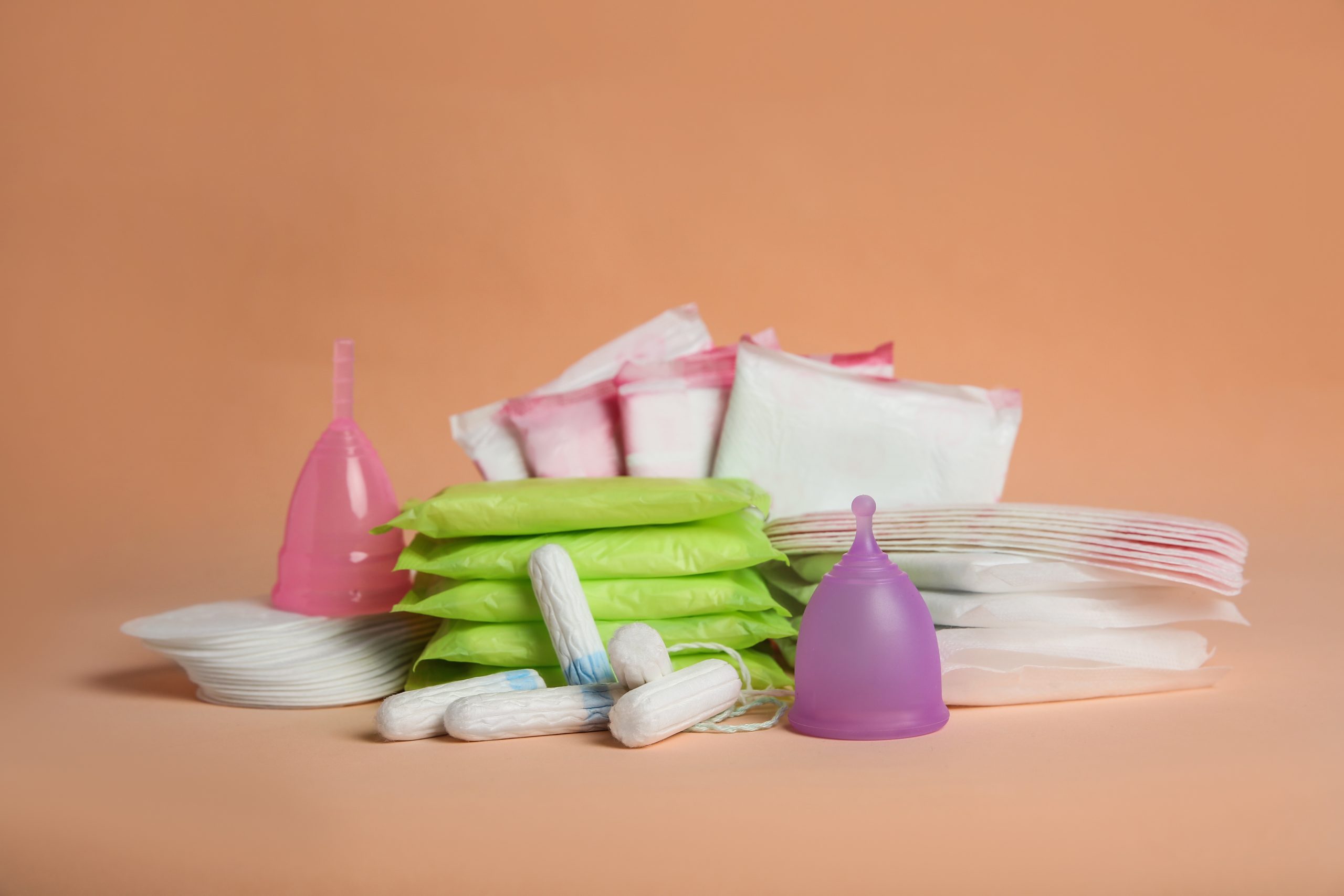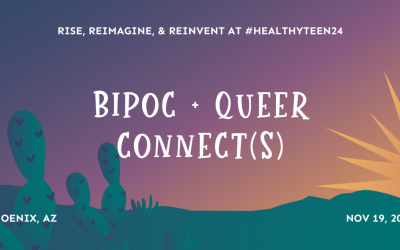

By Sasha Grenier, MPH, CHES
December 14, 2023
This October, I attended the #HealthyTeen23 conference to accept the #StandingStrong award on behalf of a team at the Oregon Department of Education. The Menstrual Dignity for Students Program was born out of the work of many advocates, legislators, and, most importantly, youth for many years.
This project has truly been a shared effort, a labor of love, and a deep passion for us over the past years. I’m excited to share more about the program and how you can work with folks in your community to develop something similar in your state.
The Oregon legislature passed the Menstrual Dignity Act in 2021, which was signed into law by then-governor Kate Brown. Oregon’s law is the most inclusive of its kind in the nation—and the only one of a handful in the country that comes with funding. The intention of the law is that all public schools in Oregon must now stock pads and tampons in all bathrooms.
Subsequent Oregon Administrative Rules developed by ODE and the Menstrual Dignity Advisory Group, and then passed by the Oregon State Board of Education, clarified that just providing products in bathrooms is not enough. This group of partners established the pillars of menstrual dignity to serve students with equity at the center. Those pillars include privacy, inclusivity, accessibility, and education. It’s equally essential to promote the understanding that bodies, menstruation, and self-care are worthy of celebration not shame.
Why is this so important? For students in Oregon and across the country, period poverty can prevent young people from engaging in school, whether that means not going to school entirely during their period because they may not have access to menstrual products to bring to school or leaving school early because they don’t have products available at school. Studies show that 4 out 5 of students have missed school, or know someone who has, because of not having access to products during their period.
Talking about menstruation and menstrual products with people of all ages as a normal and healthy part of growing up will reduce the shame and stigma students often feel about getting their period.
Young people—and all of us, really—deserve to live in a world that celebrates and does not stigmatize the topic of menstrual health and human growth. I’m sure many of us wish that we grew up in that world. Talking about menstruation and menstrual products with people of all ages as a normal and healthy part of growing up will reduce the shame and stigma students often feel about getting their period. Promoting this level of understanding, among both people who do menstruate and people who don’t, will ultimately move to create more welcoming school cultures where young people can experience and celebrate their full humanity.
But implementing this vision is challenging, and especially so in a K-12 public education system that serves about 600,000 students. In response, ODE developed the Menstrual Dignity for Students Toolkit to help schools across the state make this happen. It’s a manual that provides best practices for staff engagement, student and community engagement, and provides resources, messages, talking points, lessons, and more.
Since the publication of the toolkit, we’ve heard from national partners about how far and wide this work has reached. The toolkit spearheaded creation of similar toolkits in Illinois, Washington, New York, Delaware, and Utah. It has been used as a guide for California’s implementation of a similar law, and it was used to help the state legislatures of Hawaii, Connecticut, and Oklahoma to visualize proposed bills. It’s been amazing to see how Oregon’s work has been used to serve more students in more states across the country.
ODE believes deeply in the value of this work and, although it’s not easy, it is vital for health and educational equity. And we’re grateful to the Healthy Teen Network for believing in this, too.
Sasha Grenier (she/her) is the Sexuality Education Specialist at the Oregon Department of Education. In this role, Sasha supports school districts to provide comprehensive sexuality education, menstrual dignity programming, child abuse prevention education, and pregnant and parenting student supports. Before working at ODE, Sasha taught health education and sexuality education at the college level, facilitated education programs with sexual and reproductive health providers internationally, and worked as a maternal mental health researcher. She has a Master’s degree in Public Health, Bachelor’s degrees in Sociology and Religion, and is a Certified Health Education Specialist. She is originally from Miami, Florida, and now lives in Milwaukie, Oregon.












